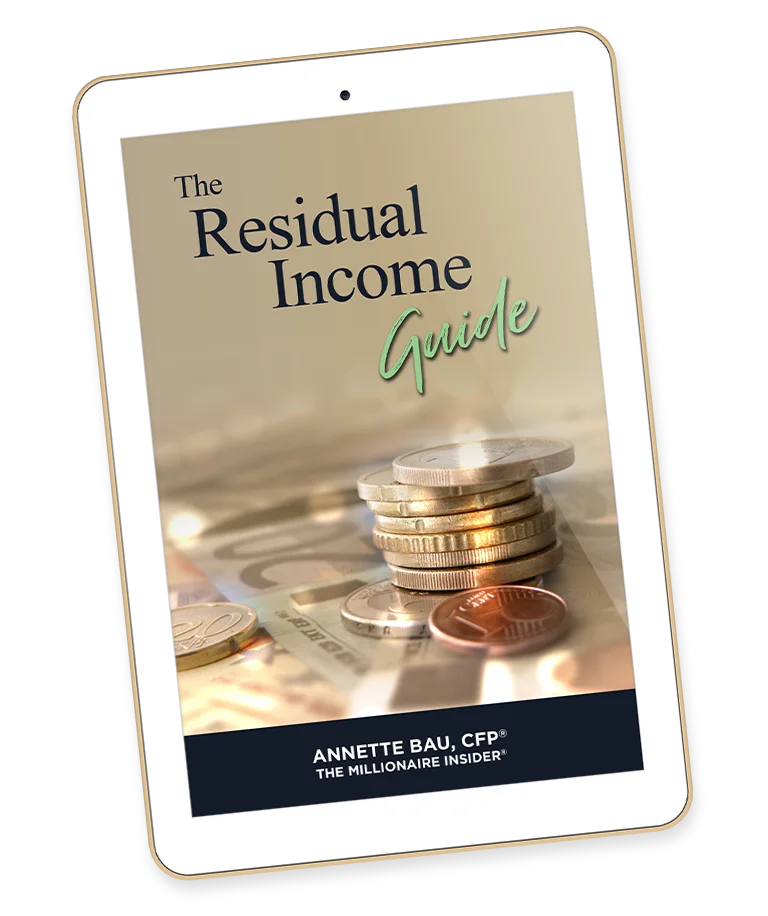Updated April 19th, 2024.
Real estate investments offer a potential path to wealth creation. Today, in “How to Make Money in Real Estate,” you will learn what you need to know before investing.
Examples include:
- Rental and investment properties, such as single-family homes
- Commercial properties
- Vacation rentals
- Residential properties
Disclosure
All materials and intellectual property are copyrighted by MillionaireSeries.com®.
This information is for educational purposes only. It is not intended to replace any advisor or specialist or provide investment, financial, tax, retirement, planning, or healthcare advice.
By reading this, you agree to hold MillionaireSeries.com® and its affiliates harmless for results achieved or not achieved.
Today, you will learn
- The basics of real estate
- Strategies for making money in real estate
- Additional training on generating revenue in real estate
Overview of Real Estate Investments
Real estate provides a variety of options that are important to understand.
The Advantages of Investing in Real Estate

Investing in real estate offers numerous advantages that make it attractive for investors. Some of these include:
- Passive Income
Some people consider real estate income to be passive or residual.
- Tax Advantages
There may be tax benefits from owning real estate. Always check with a qualified CPA.
- Appreciation Potential
If your property appreciates, you will make money.
Downside of Real Estate
Investing in real estate has many attractive advantages. That being said, it is important to deal with the potential downsides of real estate, such as:
- Mortgage Payments
If you have a loan on your property, you must make mortgage payments, whether you have a tenant or not. - Taxes and Insurance
You will also have to pay property taxes and insurance.
- Illiquid Assets
If you need money quickly, you need to find a buyer.
9 Ways to Make Money in Real Estate
Making money in real estate can be complicated.
Understanding the different income options can help maximize your return and profit.
Let’s review ten ways to make money in real estate:
1. Appreciation
One of the most common ways to make money in real estate is through appreciation. This refers to the increase in a property’s value over time. Investors can maximize appreciation by buying properties in high-demand locations. In addition, high-growth areas can influence how much an investment appreciates.
2. Raw land
Another high-risk type of real estate with the potential for high return is raw land.
Raw land often has a higher upfront investment cost. This is because of the costs associated with developing the land, such as utilities and construction.
3. Rental Income
Generating rental income is another popular method of making money in real estate. Investors can purchase properties and rent them out to tenants, providing steady cash flow. Rental income can be effective in areas with high demand for housing or in markets with rising rental rates. However, when real estate is overvalued or at an all-time high, it can be difficult, if not impossible, to make money from rental income.
4. Airbnb or VRBO (Vacation Rentals by Owner)
Short-term rentals have become a popular way to generate income from real estate. Investors can rent out properties nightly or weekly to clients seeking temporary rentals. Short-term rentals often command higher rental rates, especially in high-demand areas.
Alongside these upsides are the potential risks of having many different tenants move in and out quickly.
5. Fix and Flip

Flipping houses involves buying properties, renovating them to increase their value, and selling them for a profit.
This strategy requires identifying undervalued properties, which may take time.
It also requires the ability to manage and complete renovations. The less money you spend on materials and labor, the more you profit.
6. Real Estate Investment Trusts (REITs)
REITs are companies that manage income-generating real estate. They include a range of options. Examples include residential, commercial real estate, or industrial properties.
Investors can buy shares in publicly traded REITs. REITS offer exposure to real estate assets without owning or managing properties directly. They typically pay dividends to shareholders, providing a source of passive income.
7. Real Estate Development
Real estate development involves acquiring land, obtaining permits, and constructing properties for sale or lease. Development projects require significant capital and expertise.
They offer the potential for substantial profits, especially in areas experiencing rapid population growth. Successful developers ensure profits by focusing on market demand, the difficulty of the project, and effective management.
8. Real Estate Crowdfunding
Crowdfunding platforms let people come together to buy, build, and fix up properties.  Investors can participate in crowdfunding campaigns with relatively small investments.
Investors can participate in crowdfunding campaigns with relatively small investments.
Crowdfunding platforms typically charge fees or take a percentage of profits but provide access to investment opportunities.
9. Tax Benefits
Real estate offers numerous tax advantages for investors.
Examples may include deductions for
- Mortgage interest
- Property taxes
- Depreciation
- Maintenance expenses
Using these tax benefits, investors can reduce their taxable income and increase their overall return on investment.
Consult with a tax professional to fully understand the tax advantages associated with real estate investing.
What Can You Do Today?
Real estate investment is accessible to everybody through different investment strategies. By taking the steps today to prepare for any given strategy, you can begin to tackle goal after goal.
1. Educate Yourself
Read books, articles, and online resources to expand your knowledge base. Seek mentorship from experienced investors and industry professionals. Education can help prepare you for unexpected events, such as a difficult tenant.
2. Set Investment Goals
Define clear, measurable objectives for your real estate investment journey. Establish timelines, milestones, and performance benchmarks to track progress. By setting goals, you give yourself something to strive for.
Review your financial situation and ensure you deeply understand where your portfolio stands. This will help you better understand your buying power and potential and which real estate sector makes sense for you, if any.
3. Start Small
Begin with low-cost entry points such as REITs or rental property investments. To mitigate risks, consider partnering with other investors. Both options are available to novice investors and can be a starting point for many.
4. Take Calculated Risks
Conduct thorough research on potential investments and their potential risks. Evaluate risk factors, market dynamics, and exit strategies before making investment decisions.
5. Keep up to date
Stay informed about market trends, regulatory changes, and industry developments. Seek feedback and adjust your strategies accordingly.
How to Make Money in Real Estate Training
Today, in “How to Make Money in Real Estate,” you will learn the behind-the-scenes insight on investing in real estate. You will learn active and passive real estate investing insights I have learned in my 30+ years.
I share what you need to know about real estate investing (that no one tells you).
In today’s episode, I teach you what I discovered over three decades of investing in real estate. For the behind-the-scenes insight on real estate investing and wealth creation, you will love today’s episode!

Specifically, you will learn:
- What you need to know about real estate investing
- Strategies for making money in real estate
- Insight on passive real estate investing, including publicly traded REITs and investment properties
- How to generate income from different types of real estate investments
- Passive and residual income options, such as rental income or real estate investment trusts
- Investing for beginners as well as more advanced investors
- The inside scoop on the millionaire real estate investor
- What it takes to be a property manager for when you buy a property
- Different real estate investment strategies for generating cash flow
- Insight that experts often do not know (or that they do not tell you)
- How to pay your mortgage payment through commercial properties
- The most important lesson I learned investing in real estate (and that almost cost me $150,000 in lost revenue)
- Insight into real estate investment in the current market
- Tax strategies and insight on how to handle gains in your investment portfolio
- Passive and residual income through residential properties or rental properties
- How millionaires invest, create a plan, and make financial decisions in the real estate market
Additional Considerations
Embarking on a real estate investment journey requires careful planning. By following a systematic approach, investors can better approach investing and create more success.
Define Financial Objectives
Clarify short-term and long-term financial goals.  Then, determine your portfolio allocation, including real estate. Determine investment criteria, including property types, locations, and desired returns.
Then, determine your portfolio allocation, including real estate. Determine investment criteria, including property types, locations, and desired returns.
Educate Yourself
To acquire foundational knowledge in real estate investment, read books, attend seminars, and enroll in courses. Research how to analyze the market, finance your investments, and manage risk.
Build a Network
Establish relationships with real estate agents, lenders, contractors, and other industry professionals. Also, attend local real estate investment clubs and networking events and leverage online communities.
Conduct Market Research
Analyze local market trends, economic indicators, and demographic data. Identify target neighborhoods with strong demand, growth potential, and favorable investment conditions.
Secure Financing
Explore mortgage options, private lending, and creative financing strategies. Use pre-approval to strengthen negotiating power and expedite the purchase process. Being prepared not only saves you time but can result in more savings.
Identify Opportunities
Search for properties through multiple channels, including MLS listings, foreclosure auctions, and off-market deals. Research can make or break any investment.
Examples of considerations include:
- Location
- Condition
- Cost
Execute Investment Strategy
Purchase properties that align with investment goals. Implement the chosen investment strategy (e.g., rental, fix-and-flip) with attention to the constraints present.
Manage Properties Effectively
Establish efficient property management systems to ensure smooth operations. Promptly address tenant needs, perform regular maintenance, and monitor financial performance closely.
Conclusion – “How to Make Money in Real Estate”

Real estate investments offer a potential pathway to wealth creation.
You must understand the pros and cons of real estate investing and how you can profit.
Success in any investment requires patience, persistence, and commitment to learning.
This article is for informational purposes only. Before investing any money, always check with a qualified advisor. This is especially important with non-liquid assets such as real estate.
Click here to watch the video training.



